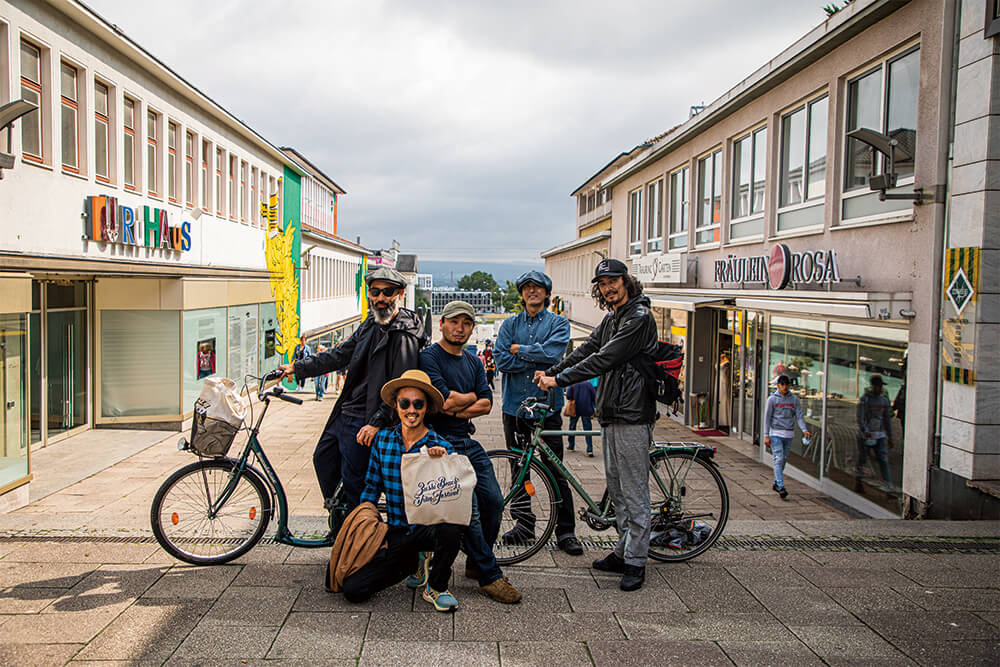Takashi Kuribayashi + Cinema Caravan
■Comments on Participating in Roppongi Art Night
When I was in my twenties, I took a boat trip to the Great Barrier
Reef in Australia. Besides it being my first time diving, I was
mesmerized by a crystal-clear world teeming with nearly
two-meter-long sharks and a remote island full of hundreds of
monitor lizards. Among these many experiences, there was one
particular landscape and location that had a strong and vivid
impact on me. It was the graveyard of ships. I was told that this
was a place where shipowners, looking to cash in on insurance
money, intentionally ran their old ships aground to receive
compensation. Dozens of large tankers lie stranded and abandoned
in the middle of the ocean, where there is nothing to be seen for
a full 360 degrees. Among these was an old wreck that looked like
a ghost ship from Pirates of the Caribbean, and against the
setting sun it made for a strange world that seemed unreal. That
moment set off my imagination, eventually becoming the impetus for
this project. I imagined those tankers becoming unmoored from
their resting places by storms and typhoons, left to wander the
world’s oceans. Migratory birds would stop to rest, and the
creatures and plants they brought with them would put down roots
and eventually become a forest that would overtake the entire
ship. Flora and fauna from all over the world would continue to
grow on the tanker, creating a large and self-contained ecosystem.
It is with this grand and detailed fantasy that the tanker project
began.

Takashi Kuribayashi + Cinema Caravan
(Profile)
Since his early career in Germany, shortly after the
reunification of East and West, Takashi Kuribayashi has been
presenting a range of works, with a particular focus on
large-scale installations centered on the theme of “boundaries.”
He has maintained an active career while traveling back and
forth between Japan and Indonesia, and has been invited to
participate in exhibitions both in Japan and internationally.
Cinema Caravan, which began working with Kuribayashi in 2009,
was founded by members of the first Zushi Beach Film Festival
(2010), held in Zushi, Kanagawa Prefecture. The diverse
collective includes photographers, fabricators, and chefs, and
extends beyond film to serve as a medium for connecting people
and cultures and creating shared experiences. Last year, the
group participated in Documenta fifteen in Germany, where they
held various events based on their exhibited work Outside of
Mosquito Net.
Kuribayashi received the Minister of Education, Culture, Sports,
Science and Technology’s Art Encouragement Prize at Documenta
fifteen in 2022 for his work Genki Rōgen Unit 4, presented by
Takashi Kuribayashi + Cinema Caravan.